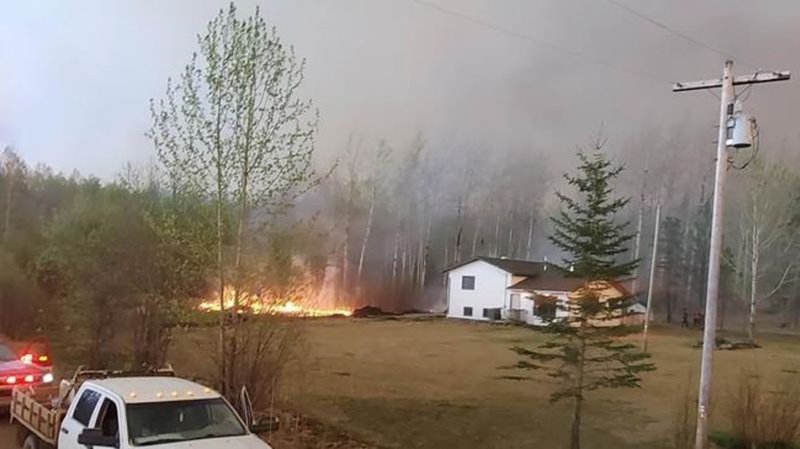
‘The devil’: Métis settlement looks to rebuild from wildfire as hot weather to return
A Métis settlement devastated by an out-of-control blaze remains at risk as hot and dry conditions in Alberta’s forecast threaten to worsen an already intense wildfire season.
“That fire, I call it the devil. I’ve never seen a fire like that in my life,” said Raymond Supernault, chair of the East Prairie Métis Settlement.
“I never seen a fire like that come that quick and fast and go through the settlement and burn everything in its sight.”
Driving through the settlement around 165 kilometres east of Grande Prairie, the ground is charred black, electrical poles look like matchsticks and 14 homes were consumed by the inferno.
